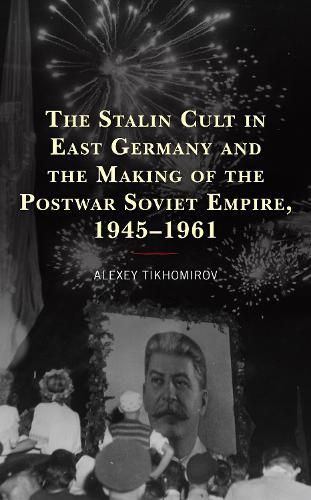Readings Newsletter
Become a Readings Member to make your shopping experience even easier.
Sign in or sign up for free!
You’re not far away from qualifying for FREE standard shipping within Australia
You’ve qualified for FREE standard shipping within Australia
The cart is loading…






This book examines the construction, dissemination, and reception of the Stalin cult in East Germany from the end of World War II to the building of the Berlin Wall. By exporting Stalin's cult to the Eastern bloc, Moscow aspired to symbolically unite the communist states in an imagined cult community pivoting around the Soviet leader. Based on Russian and German archives, this work analyzes the emergence of the Stalin cult's transnational dimension. On one hand, it looks at how Soviet representations of power were transferred and adapted in the former "enemy's" country. On the other hand, it reconstructs "spaces of agency" where different agents and generations interpreted, manipulated, and used the Stalin cult to negotiate social identities and everyday life. This study reveals both the dynamics of Stalinism as a political system after the Cold War began and the foundations of modern politics through mass mobilization, emotional bonding, and social engineering in Soviet-style societies. As an integral part of the global history of communism, this book opens up a comparative, entangled perspective on the ways in which veneration of Stalin and other nationalistic cults were established in socialist states across Europe and beyond.
$9.00 standard shipping within Australia
FREE standard shipping within Australia for orders over $100.00
Express & International shipping calculated at checkout
This book examines the construction, dissemination, and reception of the Stalin cult in East Germany from the end of World War II to the building of the Berlin Wall. By exporting Stalin's cult to the Eastern bloc, Moscow aspired to symbolically unite the communist states in an imagined cult community pivoting around the Soviet leader. Based on Russian and German archives, this work analyzes the emergence of the Stalin cult's transnational dimension. On one hand, it looks at how Soviet representations of power were transferred and adapted in the former "enemy's" country. On the other hand, it reconstructs "spaces of agency" where different agents and generations interpreted, manipulated, and used the Stalin cult to negotiate social identities and everyday life. This study reveals both the dynamics of Stalinism as a political system after the Cold War began and the foundations of modern politics through mass mobilization, emotional bonding, and social engineering in Soviet-style societies. As an integral part of the global history of communism, this book opens up a comparative, entangled perspective on the ways in which veneration of Stalin and other nationalistic cults were established in socialist states across Europe and beyond.